Photo Record
Images
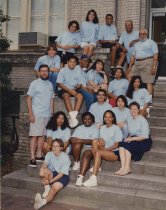
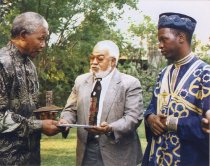
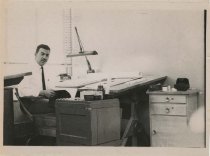

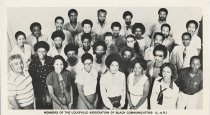

Additional Images [4]

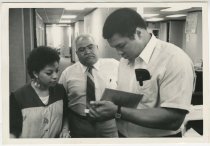
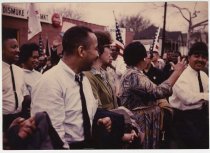
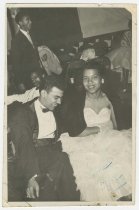
Metadata
Title |
Mervin Aubespin Photograph Collection |
Collection |
Mervin Aubespin Photograph Collection |
Catalog Number |
020PC11 |
Date |
1937-2013 |
Description |
*Click Media button above for full item list (in-house only)* This collection consists of 91 folders and includes material related to Mervin Aubespin's career as a journalist, as well as some material from his personal life. Material throughout the collection reflects Aubespin's lifelong mission to bring more people of color and underrepresented populations into the field of journalism. Aubespin was born in 1938 in Opelousas, Louisiana. In 1958, he graduated from the Tuskegee Institute (now Tuskegee University). While studying at Tuskegee, Aubespin became involved with the Civil Rights movement, including the Montgomery Bus Boycott and march from Selma to Montgomery. Upon graduation Aubespin moved to Louisville where he became a teacher and remained involved in the civil rights demonstrations in the city. He then took a job at BF Goodrich, which according to Aubespin resulted in the loss of his draft deferment. In an interview, Aubespin stated that while serving his obligatory two years of military service, he decided to spend his free time studying art. Following honorable release from the military, Aubespin returned to Louisville where he and other Black artists founded the Louisville Art Workshop. In 1967, Aubespin took a job at the Courier-Journal as a news artist. It was during a period of pronounced racial unrest in 1968 that Aubespin's career as a reporter began. During this time as it became unsafe for his white coworkers to report from the scene, Aubespin assumed the role of reporter and relayed stories of what was occurring in west Louisville to the writers at the Courier-Journal. Aubespin says he eventually returned to his job as an artist before being approached months later by the publisher of the newspaper and told that he was more valuable to the Courier-Journal as a reporter. In 1971, he entered the Minority Journalism Program at Columbia University. Aubespin's career as a journalist for the Courier-Journal spanned decades and included countless stories. Throughout his time at the Courier-Journal he worked in several positions and retired from the newspaper in 2002 as the Associate Editor/Development. Aubespin served as a consultant on media to the United Nations Development Programme's Office of Public Affairs and led numerous trips of journalists to countries including Senegal, Mali, Burkina Faso, Mozambique, and South Africa, among others. Throughout his career at the Courier-Journal, Aubespin was also involved in numerous professional journalism organizations including, but not limited to the National Association of Black Journalists and the American Copy Editor Society. The collection documents Aubespin's involvement with these organizations and several mentorship programs, such as the Rainbow Institute. In addition, photographs document Aubespin's numerous international journalism trips and his involvement with the United Nations Development Programme focusing on such issues such as HIV/AIDS in Africa and media images of Africa, among other topics. Finally, photographs document Aubespin's work as co-author of Two Centuries of Black Louisville: A Photographic History alongside Kenneth Clay and Dr. Blaine Hudson. Highlights of the collection include images taken at the Selma to Montgomery March in 1965, images taken at conferences for the National Association of Black Journalists, images related to Aubespin's work with the United Nations, and images of book signings for the book Aubespin co-authored with J. Blaine Hudson and Kenneth Clay, Two Centuries of Black Louisville: A Photographic History. Series Level Descriptions: Folders 1-26: Family and Personal photographs Folders 27-29: Miscellaneous Folders 30-44: Courier-Journal related photographs Folders 45-51: National Association of Black Journalists Folders 52-56: Mentorship and Miscellaneous projects Folder 57-60: Awards Folders 61-73: International Travel & Work with the United Nations Folders 74-82: Art Related Folders 83-85: Two Centuries of Black Louisville Folders 86-90: Oversized materials Folder 91: Digital Collections (Reference Room Access) |
Search Terms |
African Americans Black history Black power Civil Rights Journalists Political participation Twentieth century Twenty-first century Women Women, Black |
